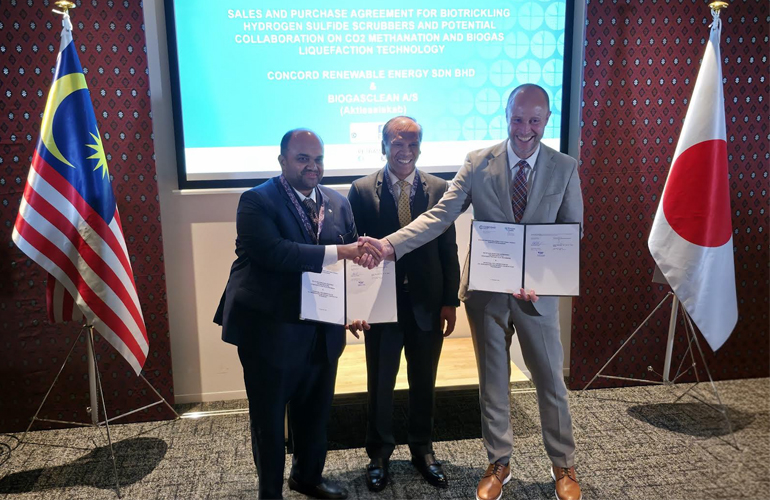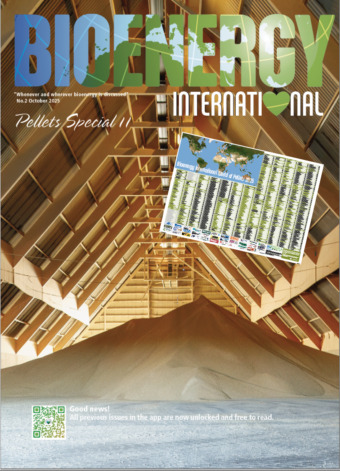Denmark-headed Biogasclean, a leading manufacturer of desulfurization and methanation equipment with operations in Europe and Thailand, has announced a new partnership agreement with Malaysia-based Concord Group to develop seven new renewable energy sites across Malaysia. The collaboration will provide market-leading, proven European cleantech solutions to transform biogas derived from palm oil mill effluent (POME) into green energy.
According to a statement, this partnership will leverage advanced biological desulfurization and methanation technology from Biogasclean, a wholly owned subsidiary of UK-headed CycleØ Group, a pan-European integrated producer of compressed and liquefied biomethane (bioLNG), to produce sustainable energy and significantly reduce carbon emissions and waste.
The Biogasclean technology will purify biogas produced from POME via anaerobic digestion (AD), which will be used to generate green electricity to be fed into the Malaysian electricity grid.
Looking ahead, the partnership also opens opportunities to upgrade biogas into biomethane aka renewable natural gas (RNG) for gas grid injection or liquefaction to bioLNG, enabling its use as a low-carbon fuel for marine and road transport.
Expansive market
In Southeast Asia, where governments are committed to achieving net-zero, demand is rapidly growing for high-quality, traceable green fuels, particularly for export to markets such as Singapore.
Supportive policies on clean energy, sustainable infrastructure, and transparent climate-related disclosures, combined with an extensive Free Trade Agreement network between Singapore and its local trading partners, further strengthen the region’s role in the global green economy, which has seen rapid growth.
According to the Singapore Economic Development Board (EDB), Singapore’s transformation of its energy and chemicals sector has seen its green economy increase significantly over recent years, with the number of companies generating green revenues more than doubling since 2016.
National initiatives such as the Singapore Green Plan 2030 and the Singapore-Asia Taxonomy for Sustainable Finance underpin the country’s ambition to become a global green growth hub.



